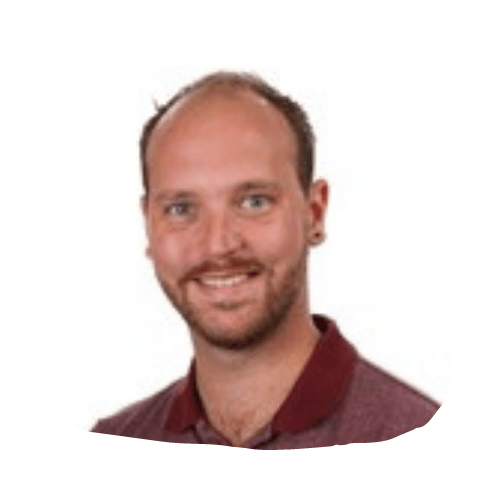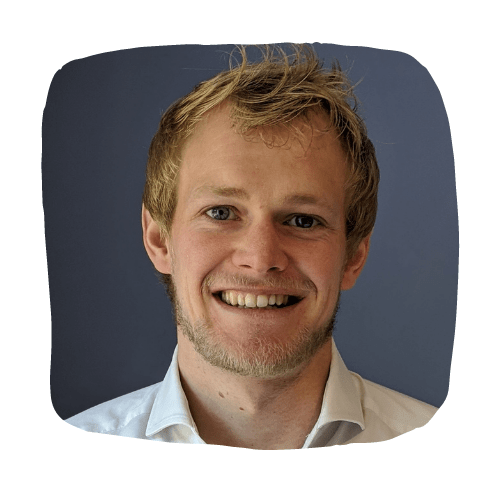The Wonderful World of Mathematics - Celebrating World Maths Day
Today is World Maths Day and to celebrate, we’ve stepped into the worlds of The Education People’s primary and secondary maths advisers, and we are excited to introduce to you Jason Horne and Andrew Woods.
But first, why is maths so important?
Maths is used every day in all sorts of situations; from complex equations used for sending rockets into space to basic addition and subtraction to work out how much change you are due from your shopping.
Maths provides a language and framework for describing and understanding the quantitative aspects of the world around us. It is used in various disciplines such as science, engineering, finance, computer science and more.
Mathematics involves both theoretical and applied aspects.
- Theoretical mathematics deals with the development and study of abstract structures and relationships, often with an emphasis on proving theorems and discovering new mathematical truths.
- Applied mathematics, on the other hand, involves using mathematical techniques and principles to solve real-world problems and address practical challenges.
The incredible thing about maths is that no matter where in the world you are, everyone can do maths!

Meet Jason Horne, Specialist Subject Adviser for Primary Maths.
Before joining The Education People, Jason worked as a teacher for 11 years. We asked Jason some questions about maths, his previous roles and how he ended up as a specialist subject adviser.
How did you know you loved maths?
I would not say that as a child I loved maths. I would not say that I was particularly good at maths. I don’t think that I began to love maths until I taught maths. I realised that I loved the puzzle of getting pupils to understand something that we take for granted. I have taught predominately in early years and key stage one and adore building the foundational knowledge of maths that these pupils will use forever.
What inspired you to get involved in maths?
Before teaching maths I had been a leader of computing and PE in my previous schools. I felt that I could use the skills I used from previous leadership within maths, so I jumped at the opportunity. I noticed when working with pupils and adults in schools that lots of people have maths anxiety. We often hear people discuss how they do not like maths or cannot do maths (something you would not hear people say openly about reading and writing). I made it my focus to support teaching of mathematics in a conceptual way so that pupils understand the deep relationships and connections in maths rather than just learning a procedural way to solve maths.
I was most inspired when I attended as a maths lead a course about Bar Modelling ran by Laurie Jacques. It was in this session where I explored the solving ratio through bar modelling. I had been taught the procedure previously but had not truly understood what ratio meant and how we could picture this in different ways. This I highlight as the beginning of my Teaching for Mastery journey.
What is your favourite thing about maths?
My favourite thing to do in maths is to find another way of solving a problem. I often fall down the rabbit hole of looking at previous examinations and exploring is there any other way of solving the questions without using the standard procedural method. I then have to evaluate if my new method was more effective than the standard method. Some might say this is a waste of time, but I think it helps us think outside the box, ensures that we make connections in maths and opens our minds to the ways that pupils might solve something without pushing one method on them.
How did you become a Specialist Subject Adviser for Primary Maths?
Whilst teaching maths, I heard about the Teaching for Mastery specialist role that was being created and applied and trained to be a Cohort 1 Mastery Specialist. I love this role and I am still working as a specialist with the Kent and Medway Maths Hub.
In 2020 the role of Maths Adviser for The Education People was advertised and I knew immediately I wanted to support schools and maths leaders throughout the county and beyond.

Meet Andrew Woods, Specialist Maths Adviser (11-19).
Andrew has graced many areas of the country with his maths knowledge and has previously taught and led secondary maths divisions in Walsall and Bristol before bringing his expertise and experience to Kent.
What’s your favourite thing about maths?
At school, I learnt that maths learning isn’t actually about the level of ability to comprehend something, but more often than not, it’s about the commitment and dedication you put into the subject. I remember way back in Year 3 we had a multiplication worksheet. I really enjoyed the resilience of it, just keeping going and getting it finished. I remember this because throughout my career, something I often come back to is that the underlying theme and concept to maths is about keeping going and persevering; wrestling with a problem until you’re able to solve it. This is one of my favourite things about maths, it’s a topic that challenges you to dig your teeth in and not let go until you’ve solved it.
What do you find fascinating about maths?
I quite often refer to a study which was produced on the Pisa Tests, an international testing format which assesses maths attainment throughout different countries. One company completed the Pisa Test with their subjects and then gave the participants a horrendously long evaluation form to complete. The content of the form was irrelevant, but the aim was to make the form as tedious as possible. Understandably, most people didn’t even complete the evaluation form, but the task was to correlate how far subjects got through the evaluation and their Pisa Test scores. The correlation was near enough perfect and a student who would persevere with a really boring evaluation form, scored very highly on their maths Pisa Test. For me, this is just one example that shows how committing to something, time on task and building resilience are fundamental factors of being good at maths.
How did you know you loved maths?
My degree is in maths and biology and an area that I’m really interested in is noticing and seeing patterns in the world and abstracting that mathematically. Throughout my degree, I focussed on animal behaviour and social groups and some of the mathematical modelling you can do to predict animal behaviours. Maths describes a lot of these behaviours and becomes a foundation for predicting and modelling silos.
What inspired you to become a maths adviser?
Maths is a confidence-based subject. Confidence comes from enjoyment and achievement. Confidence, enjoyment and achievement result in a person being good at maths. Pitching maths at the right level can create a positive cycle. A real focus for me is encouraging teachers to make students feel like they’re being successful. It’s the most important thing for the classroom environment and pitching maths at the right level for its learners is the basis for successful learning and a confident cohort of students.
We are very proud of the work Jason and Andrew do in Kent and beyond to support the teaching and learning of maths for all. On this day, dedicated to the subject, we thank them for their hard work and commitment to making maths a fun and engaging experience for all.
Click here for more information on our maths consultancy support, products and training.


